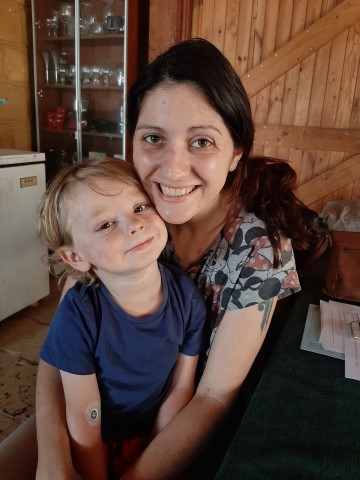Search
Showing results for "Au"
Research
The prevalence of soil transmitted helminth infections in minority indigenous populations of south-east asia and the western pacific region: A systematic review and meta-analysisBy mapping land use under projections of socio-economic change, ecological changes can be predicted to inform conservation decision-making. We present a land use model that enables the fine-scale mapping of land use change under future scenarios.
Research
Making a Killer: Selecting the Optimal Natural Killer Cells for Improved ImmunotherapiesOver the past 20 years natural killer (NK) cell-based immunotherapies have emerged as a safe and effective treatment option for patients with relapsed or refractory leukemia. Unlike T cell-based therapies, NK cells harbor an innate capacity to eliminate malignant cells without prior sensitization and can be adoptively transferred between individuals without the need for extensive HLA matching.
Research
The impact of ethnic minority status on tuberculosis diagnosis and treatment delays in Hunan Province, ChinaTuberculosis (TB) continues to be a major public health challenge in China. Understanding TB management delays within the context of China’s unique ethnic diversity may be of value in tackling the disease. This study sought to evaluate the impact of ethnic minority status on TB diagnosis and treatment delays.
Research
Mental Health Literacy for Supporting Children: A Systematic Review of Teacher and Parent/Carer Knowledge and Recognition of Mental Health Problems in ChildhoodThe level of mental health literacy (MHL) in adults who work with or care for children is likely to influence the timeliness and adequacy of support that children receive for mental health problems.
Research
Pulmonary bacteriophage and cystic fibrosis airway mucus: friends or foes?For those born with cystic fibrosis (CF), hyper-concentrated mucus with a dysfunctional structure significantly impacts CF airways, providing a perfect environment for bacterial colonization and subsequent chronic infection. Early treatment with antibiotics limits the prevalence of bacterial pathogens but permanently alters the CF airway microenvironment, resulting in antibiotic resistance and other long-term consequences.
Research
The complement system in systemic lupus erythematosus: An updateThe complement system plays a major role in the autoimmune disease, systemic lupus erythematosus (SLE). This review highlights the many roles of complement for
Research
Real-time safety surveillance of seasonal influenza vaccines in children, Australia, 2015This paper reports the results from the safety surveillance of influenza vaccines in children in Australia, in 2015.

News & Events
Meet Perth's final ENDIA participantAustralia’s biggest study into the causes of type 1 diabetes reached a significant milestone when its last Perth-based participant was born recently.

News & Events
ENDIA milestoneAustralia’s biggest study into the causes of type 1 diabetes recently recruited its 1500th and final participant right here in WA.
Research
Acute lower respiratory infections (ALRI) in Indigenous and non-Indigenous childrenIn Australia and many other developed countries, acute lower respiratory infection (ALRI) is one of the most common reasons for hospitalisation in young...
